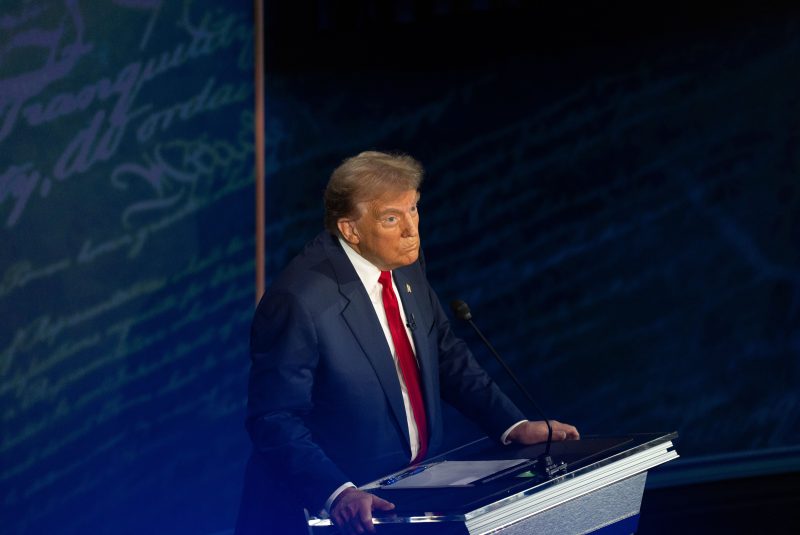Article Body:
In reference to the events unfolding in the American political landscape, recently, an intriguing development saw former President Donald Trump square off against real-time fact checks. To put this into perspective, Trump made a remarkable verbal onslaught against fact-checking during his presidential run, alleging bias and raising essential questions about how we perceive truth in the digital age.
Starting from the basics, fact-checking involves the investigation of claims made in public discourse, usually by politicians or media outlets, to ascertain their veracity. The intent is usually to ensure that the public gets accurate information, thereby promoting a truly democratic society. However, with the rise of Trump, who was often criticized for his cavalier approach to truth during his presidential tenure, fact-checking became both a controversial and essential tool in monitoring public discourse.
Trump’s tumultuous relationship with fact-checkers dates back to his early days in politics. He often deemed fact-checking as a system rigged against him, suggesting that his statements were unfairly scrutinized. In his views, fact-checking represented not the quest for truth but a biased political campaign against him.
The former president’s clash with fact-checkers reached its zenith during his presidency with his infamous Fake News tagline, a term he used to discredit media outlets that reported information he disagreed with or found unfavorable. This strained the relationship between the presidency and the press, putting fact-checkers in the center of a political storm.
The crux of Trump’s criticism lay in his point about bias. According to him, fact-checkers paid by big tech companies such as Google, Twitter, and Facebook focused more on his statements, ignoring equal scrutiny on other politicians. He believed that this was a blatant act of favoritism, sparking a conversation about possible biases in fact-checking. In the era of social media, where data influences public opinion, this claim had the potential to cause significant unrest.
Trump’s campaign against fact-checking is worth noting because it fundamentally disputes the validity and importance of fact-checking. By labeling fact-checkers as biased and by casting aspersions on their neutrality, Trump appealed to a section of society that believed they were receiving a raw deal within the democratic process.
One cannot also overlook the impact of Trump’s criticism of fact-checkers on the public’s trust in the media. The recurring theme of Fake News promoted skepticism around news outlets’ credibility and swung public opinion against them. Consequently, it raised the question about the role, function, and trustworthiness of the media in modern democracy.
His vendetta against fact-checking not only jeopardized the trust in media but also threatened the purveyors of fact-checking. Top tech companies faced severe backlash for their involvement in scrutinizing public figures’ statements, especially if they happened to be outspoken figures like Trump.
The Trump versus real-time fact-checks episode paints a fascinating picture of the challenges posed to fact-checking and the media in a post-truth era. Fueled by grand narratives and potent sound bites, this context forces us to rethink how fact-checking should function within the ambit of public discourse and how to ensure a balance between public figures’ freedom of expression and the necessity for truth in an increasingly complicated information landscape.
